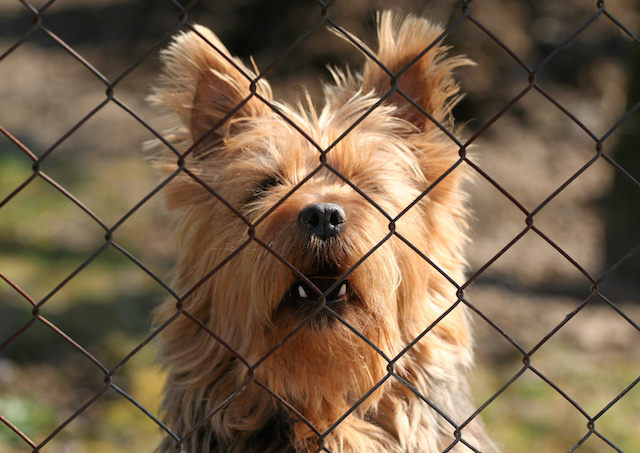Whether you live in a condominium or planned community, you are almost certain to run into questions and issues over man’s best friend. Many associations often wonder what options they have in regulating dogs in the community.
Can an Association regulate dogs in the community?
Dog restrictions in associations depend heavily on the association’s governing documents. Some associations are more restrictive than others. Generally, associations may include reasonable rules regulating pet ownership in the Use Restrictions of the CC&Rs. Usually, more strict rules are found in condominium associations, where space is more limited and residents live closer together than in planned communities.
Some typical rules (especially in condominiums) range from a total ban any pets/dogs in the association, limits on the number of pets allowed per unit/lot, weight restrictions (i.e., no dogs over 45 pounds), and sometimes even breed restrictions.
Depending on how broad your specific association’s rule-making powers are (again, check your CC&Rs), the Board also usually has the power to make additional, reasonable rules relating to pets in addition to the CC&R regulations. This usually includes rules such as owners must pick up after their pet, no dogs allowed off leash in common areas, no dogs to be left unattended in patios in condominiums, no aggressive dogs, etc.
How to manage barking dogs
One common issue, no matter what type of community you live in, is what to do about dogs that bark constantly. Often, either the CC&Rs or community Rules and Regulations will include a rule that dogs cannot create an excessive amount of noise or become a nuisance. Associations can enforce against these problems by sending violation notices to owners, assessing fines against Owners (if the Association’s fine policy allows for it), and even requesting an injunction against the Owner for a court order that the owners comply with the Rules. Sometimes, cities, towns, and counties will have additional restrictions, and the Association (or neighboring owners) can lodge complaints and request the municipality’s involvement in demanding compliance.
Fair Housing Considerations
One thing Boards should always keep in mind when it comes to dogs and pets generally in associations is that the association still must comply with the federal Fair Housing Act. This means that the Association must make reasonable accommodations or exceptions to the rules of the association for disabled individuals. If a resident is disabled and presents proof that having a dog helps him or her cope with his or her disability (which can range from physical disabilities to anxiety or PTSD), then the association has to make an exception to the pet restrictions, and allow that resident to have the dog, regardless of whether the CC&Rs prohibit dogs, or prohibit that particular size or type of dog.
This does not mean that disabled residents are exempt from following all rules of the community. The disabled resident would still have to follow the reasonable rules and regulations imposed by the Board, such as requiring owners to pick up after their dogs, have the dog on a leash while in the Common Area, and keep control over the dog. If a dog is overly aggressive or if it causes harm to other residents or animals, the association can consider demanding the dog be removed.
Contact an Arizona HOA Lawyer for Further Help
At Goodman Law Group, our sole focus is on meeting the legal needs of HOAs, including creating and implementing HOA policy and responding to homeowner concerns. Contact us today to discuss any legal challenge your HOA is facing.

